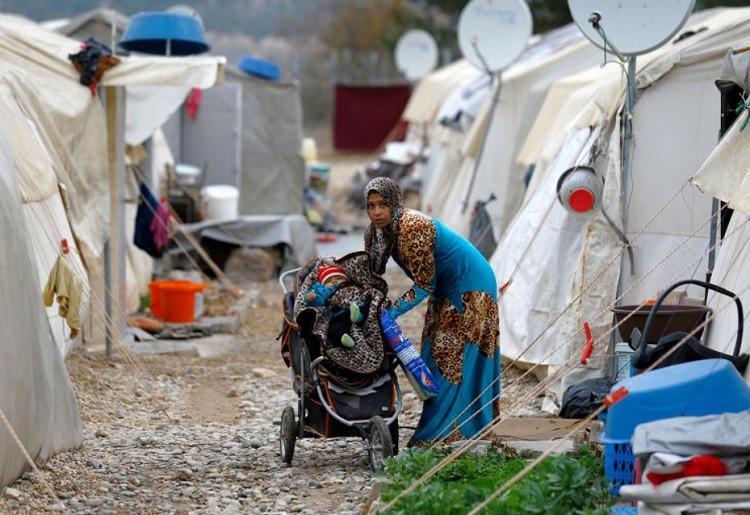Invisible victims of Syrian war find relief in committee for disabled persons
Hazal Özcan – ANKARA

The brutal Syrian civil war has left millions homeless, hundreds and thousands of people injured and claimed countless lives. Brave enough, the Syrian people relieved their emotional wounds, fled their demolished hometowns, and found shelter in other countries.
Although many try their best to get used to their new lives, not all wounds can be cured completely.
The invisible victims of the war are the ones who unfortunately became disabled due to their injuries.
As Turkey is currently the country with the largest number of refugees it is hosting, many projects are being developed to meet the refugees’ needs. One of the works concerns the hidden victims of the war and their rights: Children with disabilities.
In the southeastern province of Gaziantep, a committee for the disabled persons has been carrying out works to gather the disabled persons and their families and to find solutions to their problems.
The committee, supported by the Association for Solidarity with Asylum Seekers and Migrants’ (SGDD-ASAM) Gaziantep Integrated Field Office - which is in cooperation with the United Nations High Commissioner for Refugees (UNHCR), generally brings refugee families together who have disabled children over the age of 18.
Such as Subhi, who is a 13-year-old Syrian boy and a son to a former shaft driller called Kermo Al-Hamdu. One day, when he was at the bazaar shopping with his father, he got injured. After his injury, Subhi unfortunately developed a walking disability.
His father, Kermo, said that the committee’s activities have strengthened him. He also spoke about his greatest dream: For his son to walk again.
“I am telling the committee about our dreams with Subhi and the difficulties we have been experiencing. I’ve seen this in the committee: The things people value is different, and every disabled child’s need is different. But the more you care about the child and the more you prioritize their ideas, they will become better to the same extent,” he said.
The families share their experiences and help each other emotionally. But the committee does not only include people who became disabled after the war, such as Mohammad.
Mohammad is a 26-year-old Syrian man. He is hearing-impaired from birth, which also affects his speech.
“Until he reached a certain age, we were not aware of the situation,” said Najat Kasham, Mohammad’s mother.
“When I found out that my son is unable to speak, I was very upset. I did not believe it. I thought about the reasons behind it,” she said.
Kasham said that before she brought her son to the committee, both of them were “very stressed” and “angry.” She said that after they started coming to the committee, the communication they held with others experiencing similar problems helped a lot.
“Firstly, I learnt how to approach my son and how to be calm. Now, we are on much better terms. He is much calmer and we exhibit our love to each other,” she said.
The 51-year old Khadija Mohammad Ali also has a daughter who has been disabled since birth. Ali’s 20-year-old daughter is mentally disabled.
“Before the war, we had a good life. We had a garden in the village [and] the kids were going to the school,” she said.
“Then the war began. My husband was injured by a bomb that was dropped on our village, and he lost his life,” she added.
After her loss, Ali came to Turkey with her kids in 2014.
“After I joined the committee, I started to take better care of my child. This ameliorated her psychology. And my other kids started to take more care of her as they looked at me,” she added.
“We found out that there were people caring about us. They take good care of us here and thus we take more care of our children,” she said.
Hasan Can Pala, SGDD’s coordinator of the southeastern Anatolia region, said that the committee also has disabled persons, along with their parents.
Expressing that the committee tackles issues such as disability, the rights of the disabled, adaptation to the social life and access to rights, Pala said the SGDD is carrying out works to detect the needs of the disabled and produce solutions to them.
“We are trying to actualize projects in line with their needs,” he said.
Underlining the importance of the visibility of disabled persons in the society, Pala said: “Thanks to the committee, the members’ lives are impacted positively, and they became able to increase awareness by helping others.”
















